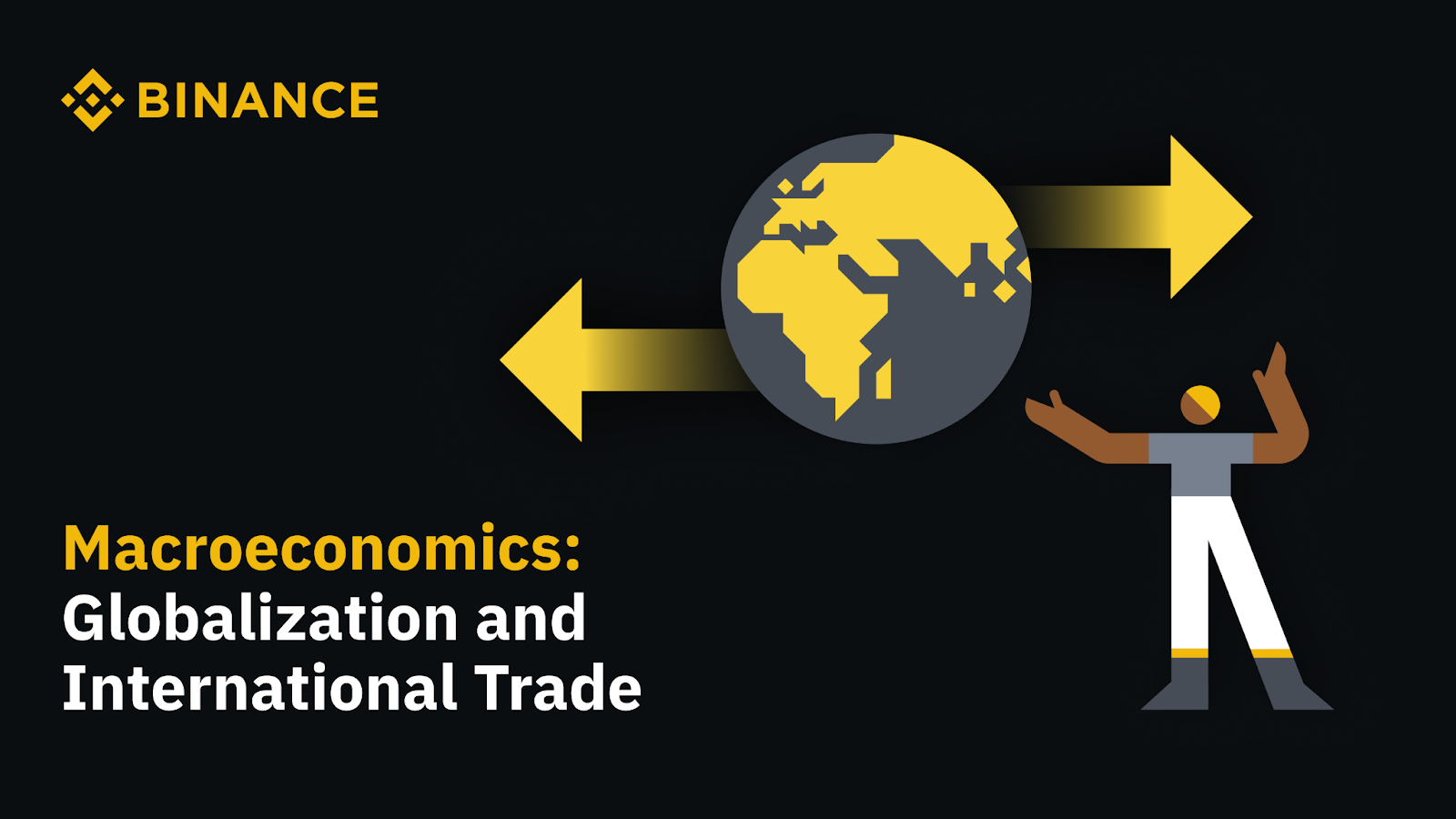Macroeconomics: Globalization and International Trade
Main Takeaways
Globalization refers to the increasing integration and interdependence of economies worldwide, driven by technological advancements, trade liberalization, and multinational corporations.
Globalization impacts macroeconomics and international trade, affecting trade balances, exchange rates, capital flows, and competitiveness.
Capital mobility across borders facilitates foreign direct investment (FDI) and brings both opportunities and challenges to economies, affecting economic growth and financial stability.
Depending on how it’s managed, globalization can alleviate or exacerbate income inequality. It’s important that policymakers consider the challenges of managing monetary and fiscal policies to mitigate potential negative effects on income distribution.
Globalization has transformed the way countries interact and conduct business, leading to both opportunities and challenges for the world economy. In this article, we will delve into the effects of globalization on macroeconomic factors, including trade balances, exchange rates, and some of the challenges posed by interconnected economies.
Our goal is to introduce some of the impacts of globalization on the macro economy to help you understand the complexities of today's globalized world and make more informed decisions when navigating the crypto markets. So, let's explore the interplay between globalization and macroeconomics.
The Basics of Globalization
What is globalization?
Globalization refers to the increasing integration and interdependence of economies worldwide. It involves the free flow of goods, services, capital, and information across borders, breaking down barriers to international trade and investment.
Drivers of globalization
There are several factors that have accelerated the process of globalization, including advancements in technology, improvements in transportation, liberalization of trade policies, and the growth of multinational corporations.
International Trade and Macroeconomic Implications
Balance of trade and current account
Globalization fosters cross-border trade, leading to the concept of the balance of trade. This represents the difference between a country's exports and imports of goods and services. A trade surplus occurs when exports exceed imports. In contrast, a trade deficit occurs when imports surpass exports. The balance of trade is a component of a country's current account, which records transactions between nations.
Exchange Rates and trade competitiveness
Exchange rates play a vital role in international trade. They determine the value of one currency relative to another and influence a country's export competitiveness. A weaker domestic currency makes exports more attractive and competitive in foreign markets, potentially boosting exports and narrowing trade deficits. Conversely, a stronger currency may lead to lower export demand and wider trade deficits.
Financial Globalization and Capital Flows
Capital mobility and investment
Globalization has facilitated the flow of capital across borders. Financial markets are now interconnected, allowing investors to access a diverse range of assets worldwide. This capital mobility has both positive and negative implications for economies, as it can lead to increased investment opportunities and access to funding but also heightened financial volatility.
Foreign direct investment (FDI) and economic growth
Foreign direct investment refers to investments made by individuals or corporations in businesses or assets located in foreign countries. FDI can have a significant impact on economic growth, as it brings in new technology, skills, and capital, stimulating domestic industries and creating job opportunities.
Globalization's Impact on Macroeconomic Policies
Monetary policy challenges
Globalization can pose challenges for central banks in managing monetary policy. Capital flows across borders can influence exchange rates and domestic interest rates, affecting inflation and economic stability. Central banks must carefully navigate these factors to achieve their policy objectives.
Fiscal policy considerations
Globalization can also impact fiscal policy decisions. Increased capital mobility may limit a country's ability to implement expansionary fiscal policies, as excessive government borrowing can lead to higher interest rates and capital flight.
Challenges and Concerns
Income distribution
Globalization's effects on income distribution can be complex. On one hand, globalization can create new economic opportunities, helping to uplift many individuals from poverty by providing access to global markets. This is particularly evident in developing countries where industries like technology and manufacturing have thrived due to globalization.
However, in certain contexts, globalization can also worsen income inequality within countries. Highly skilled workers and those in industries benefiting from globalization often see significant income growth, while others may face stagnant or declining wages, exacerbating income disparities.
Winners and losers of globalization
While some industries and regions may benefit from increased trade and investment, others may face challenges due to increased competition from foreign markets, potentially leading to job losses and a tougher environment for local businesses.
Environmental Concerns
Globalization can put pressure on natural resources and the environment due to increased production and transportation of goods. Addressing environmental challenges requires international cooperation and sustainable policies.
Globalization and Cryptocurrencies
Cryptocurrencies, as decentralized digital assets, have the potential to further reshape the global economic landscape. They can transcend traditional borders, offering new opportunities for international trade and financial inclusion while offering alternatives to conventional monetary systems. The rise of cryptocurrencies and their interaction with global economic forces underscore the need for policymakers to adapt and establish frameworks that accommodate these innovative digital assets within the realm of international finance.
Final Thoughts
Globalization has fundamentally transformed the landscape of macroeconomics, creating an interconnected world where economic decisions in one country can have far-reaching consequences globally. The impact of globalization on trade balances, exchange rates, investment, and policies calls for prudent economic management and cooperation among nations. By understanding these interactions, policymakers and individuals can navigate the complexities of globalization and work towards fostering a more inclusive, sustainable, and prosperous global economy.
